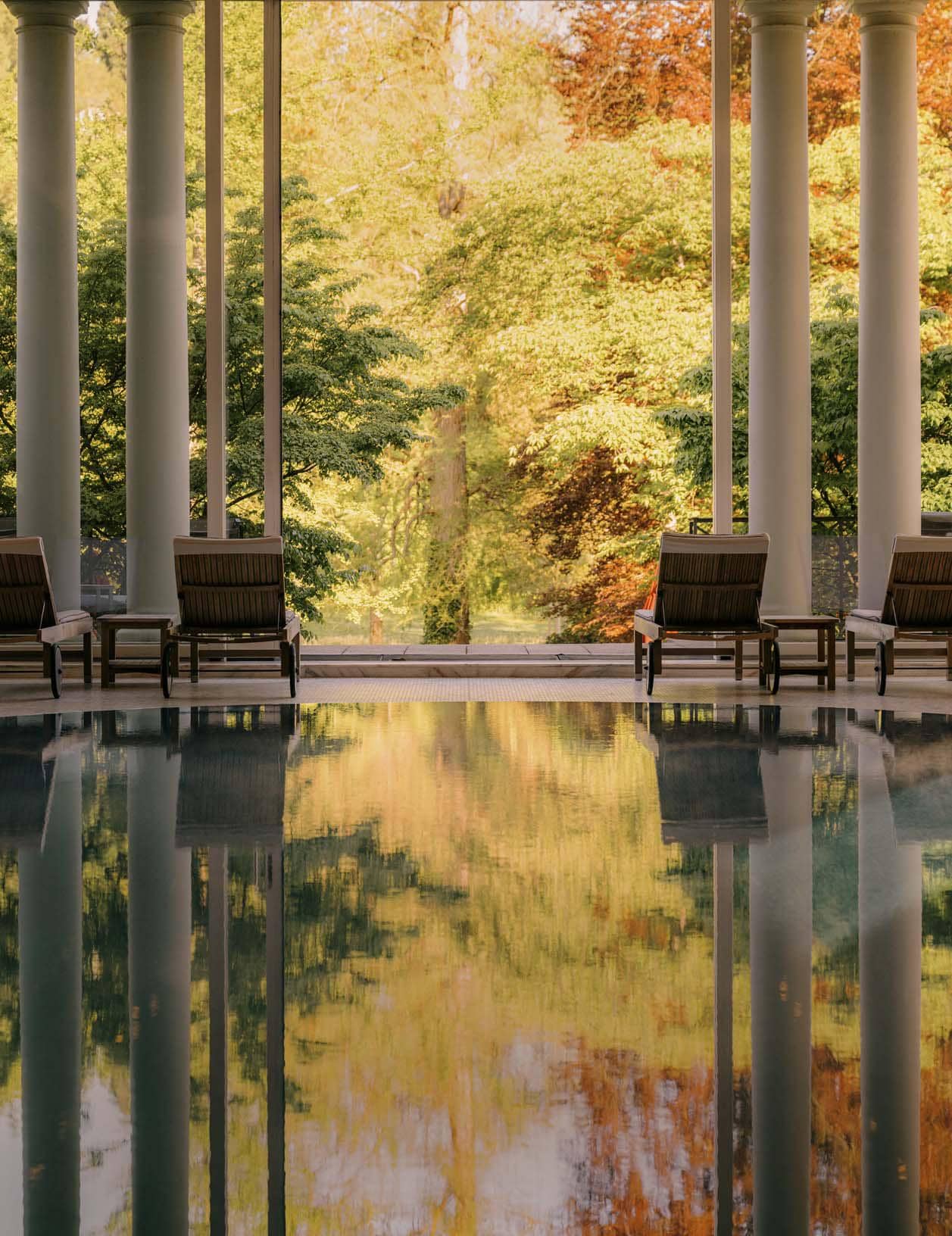
My german grandmother never liked to talk about the past, but her eyes always lit up whenever I asked her about Baden-Baden. This elegant spa town in southern Germany, just a short drive from the French border, was the only place in her forsaken fatherland that she ever spoke about revisiting; in occupied Hamburg just after World War II, she'd fallen in love with a British officer and followed him back to Britain. "We'll go back together," she used to tell me, but we both knew it would never happen. She said she was too old to travel, but I believe the real reason was that she was afraid-afraid to be reminded of what she'd left behind.
After she died, I did go to Baden-Baden, and I too fell in love with it. Hidden in a lush green valley, shielded by the dark wooded hills of the Black Forest, it felt like a relic of those halcyon days she used to talk about, before the Third Reich, before the war. The town is stately yet sedate, with a grandeur quite out of keeping with its compact size. Incredibly, it is home to many of the country's superlatives: its best hotel, biggest opera house, most opulent casino.
The reason for such affluent development in this small, unprepossessing town, and what has always drawn visitors here, is Baden-Baden's thermal springs. The Celts came first, before the birth of Christ, followed by the Romans, who were lured by the promise of the water's healing powers-or simply by the prospect of some rest and recreation. After the collapse the man Empire, the wider world forgot about Baden-Baden until the beginning of the 19th century, when bathing in hot, smelly mineral water (and even drinking it) became fashionable again. Aristocrats from all over Europe came to partake, and a flamboyant resort sprang up around Baden-Baden's antique bathhouses and drinking fountains.
Diese Geschichte stammt aus der November 2022-Ausgabe von Condé Nast Traveler US.
Starten Sie Ihre 7-tägige kostenlose Testversion von Magzter GOLD, um auf Tausende kuratierte Premium-Storys sowie über 8.000 Zeitschriften und Zeitungen zuzugreifen.
Bereits Abonnent ? Anmelden
Diese Geschichte stammt aus der November 2022-Ausgabe von Condé Nast Traveler US.
Starten Sie Ihre 7-tägige kostenlose Testversion von Magzter GOLD, um auf Tausende kuratierte Premium-Storys sowie über 8.000 Zeitschriften und Zeitungen zuzugreifen.
Bereits Abonnent? Anmelden

The Brando
THE STORY GOES that actor Marlon Brando first arrived on the 18-isle atoll of Tetiaroa by water-as in, he swam ashore.

Jumeirah Burj AI Arab
IF EVER THERE WAS a hotel that could achieve landmark status, it is Dubai's Jumeirah Burj AI Arab, which stands alone on its own purpose-built island just off Jumeirah Beach.

Blackberry Farm
BLACKBERRY FARM LOOMS in the consciousness of many travelers as an almost mythical Southern sanctuary in the foothills of the Great Smoky Mountains, a place whose storybook perfection has to be experienced to be believed.

Fogo Island Inn
THIS 29-ROOM MODERN CLASSIC in Newfoundland is a model for place-specific hospitality, dreamed up by founder Zita Cobb and built by Shorefast, a nonprofit that supports economic and cultural resilience on the hotel's namesake island and runs artist residencies in four isolated, incredibly photogenic studios.

ALAN CUMMING on CROSSING THE ATLANTIC
I went on Cunard's Queen Mary 2 for the first time in 2011.

high life
Italy's unfussy Dolomites are a place of cheerful communities, where simple chalets and good food can almost outshine the skiing

the possibility of an island
Cuba may be facing tough times, but the country's hoteliers, creators, and artists are forging a hopeful and beautiful way forward

in full bloom
Over the past three years, hotelier Fabrizio Ruspoli has turned an old olive farm south of Marrakech into the High Atlas's most intoxicating garden retreat

ALLIN
Fun has never been hard to come by in Las Vegas, but the arrival of pro sports, the Sphere, and lavish new hotels has upped the ante.

Forward March
Across Kenya, community initiatives are protecting the country's wildlife and environment. By Mary Holland